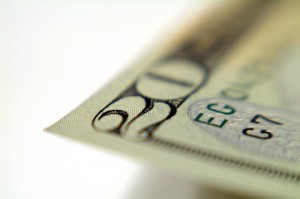Our no spend summer has resulted in the lowest balance on our checking account in, well, as long as I can remember. I was paid Friday, and after paying our bills and buying our groceries, our checking account balance is now $250.
I know there were times when I was in college, and even after I graduated, when my balance dipped well below $50. There were times when I overdrew my account. I remember these times vividly. But this is the first time since we started living frugally that I’ve seen a bank balance this low.
Don’t worry about us. We have more money in savings than we’ve ever had in one lump sum in our lives. We’re doing fine. Keeping our checking account balance low is a defense mechanism. It protects us from ourselves, and prevents us from spending more money than we want to spend.
But looking at that balance stresses. me. out. Especially since we’re heading on vacation this weekend.
I have access to our savings through my ING checking account just in case we need money immediately. Our low balance doesn’t pose us any threat since every penny is accounted for these days.
I still just don’t like seeing our balance that low. It makes me feel out of control, just like I did a little over two years ago when every penny wasn’t accounted for. When I still had bills to pay and food to buy with that $250 balance, and I was trying to make a dollar out of 99 cents.
I’m tempted to move some money around just to make myself feel better. I don’t like looking at that balance. But then the sadist in me wants to keep going, to see how far we can go this summer without dipping into our savings. After all, that was the point of the challenge. If I move $100 into our checking account just to make myself feel better, that’s technically cheating. So I’ll probably keep going, and it may even dip lower before the summer is over and Tony starts getting paid to teach again.
But it’s made me think about those days 2 years ago when low balances were a fact of life. Back when my bank balance rarely went above $500, and there was no separate account where I kept my savings because I didn’t have any savings. Back when I spent every penny I earned almost immediately. I felt out of control, and I never knew where my money went.
It’s times like these when I’m proud of what we’ve accomplished in such a short time, and I remind myself that I don’t ever want to go back. It’s amazing what frugality has done for my perspective.

